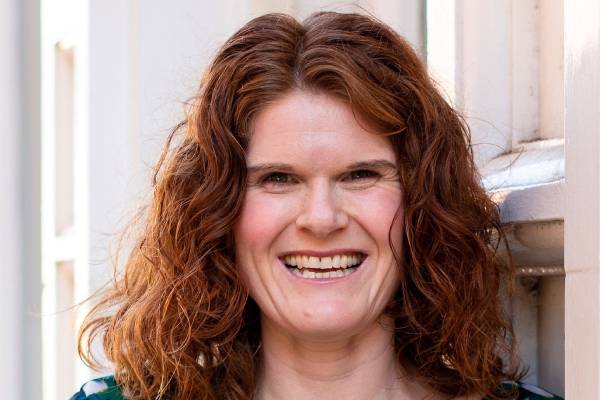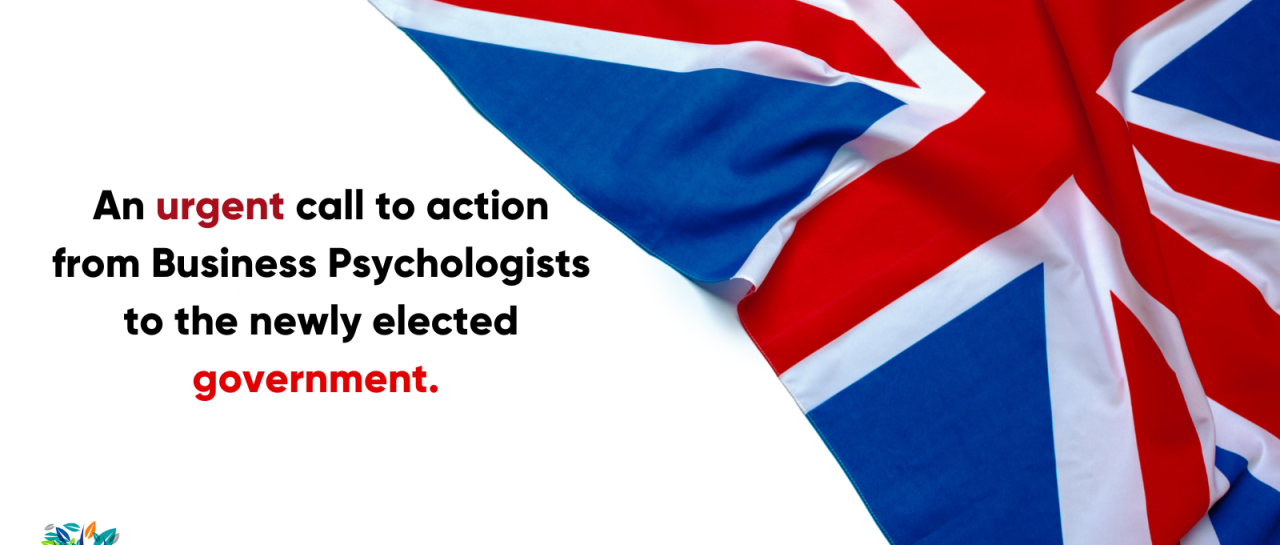Authored by Certified Business Psychologist Laura Howard. Certified Business Psychologist, Laura Howard, reflects on the webinar she recently delivered to ABP members. Below she outlines the main findings of her published research uncovering systematic barriers women face when being authentic as leaders. Importantly, she gives…

By Anna Koczwara/Hannah McQuoid-Mason, Behavioural Science Team, Natwest Group.
27th April 2021
The past year has been challenging for everyone and not least for customer facing organisations trying to maintain and deliver a service to many thousands of customers. The solution has been to deliver a programme of support which has been of value to both bank colleagues and customers, explained Anna Koczwara, Head of the Behavioural Science team at NatWest. It is the result of a wider effort which also includes Organisational Effectiveness and other multi-disciplinary teams including comms, and which identified specific needs and priorities.
Key to this support was the bank wide behavioural framework which, as part of being a purpose focused organisation, invests in skills and capabilities, health and wellbeing and building great teams. Also critical, is alignment to the NWG purpose – to champion potential, helping people, families and businesses to thrive. As part of this purpose there are three initial areas of focus, climate, enterprise and learning.
The behavioural science team of 14 people is built around addressing simultaneously Organisational Capability, Assessment for selection, development and succession and Behavioural Science for customers and for colleagues. It is multi-disciplinary team with the ambition to “use behavioural science and psychology to understand human behaviour and influence change in the right way, to enable colleagues and customers to make good decisions, and have a positive impact in their work and lives”.
No sooner had the organisation set about to re-focus when the pandemic struck.
Helping people to perform in such radically different circumstances meant having an in-depth understanding of human behaviour in situational contexts and then being able to provide appropriate support at an unprecedented scale and pace. It became clear that the launch of the purpose had provided a valuable foundation to help navigate the organisation through the various stages of uncertainty and served as an important backdrop to help understand actions which were taken. It was also helpful that the Bank had a number of partnerships in place to provide appropriate guidance and thought leadership when needed.
Becoming purpose-led in the context of addressing the issues of both colleagues and customers is a current and critical priority for a number of large organisationsIt helps colleagues in being supported so that they are at their best in dealing with customers. It also helps in making people more aware of situational contexts in which they are operating. Nevertheless, the pandemic provided an unprecedented challenge that enable a purpose-driven response at a time when there was a lot of uncertainty and challenge for our people. . Examples of these abound: 15 million working days per year are lost through stress, anxiety and depression, people struggling with mental health issues have increased from 19% to 50% while the World Health Organisation anticipates record numbers of sufferers of PTSD.
As people emerge back into communal work and social distancing restrictions are lifted, new problems arise such as apprehension of meeting with colleagues and psychological safety, not to mention actual safety.
Research has shown that working from home has had benefits for some, including improved quality of life and increased productivity. But these have not been universal: many have struggled with a range of issues from longer working hours, panic working and Zoom fatigue. These reflect traits observed from Ali Fenwick’s work which include:
- Ostrich effect
- Busy Bee Syndrome
- Working to regain control
One way to address these and provide appropriate support is to work through the grief curve which provides a model to enable us to understand of people’s reactions and behaviour and is therefore useful in helping people with their coping strategies. Large groups need help and often at short notice and science can help.
The team have leveraged several behavioural science models to understand barriers and levers more effectively. The Com-B model (Michie et al) has proved useful in organising thoughts and surfacing critical questions: using elements of capability, motivation and opportunity, this analyses what needs to change in order for a change intervention to be effective.
The Bank combined a number of tools, research results and other experiences to decide on how best to provide meaningful support when lockdown was enforced. A combination of assessing what levels of knowledge colleagues will be expected to have in terms of technology and content with operational constraints, a different set of customer liaison skills and emotions arising from a new working environment, determined an initial assessment of need and deciding who to target and support.
Feedback provided some initial responses of need. These are:
- Addressing biases, salient content, timely and engaging
- Encouraging as many as possible to engage and use the support available
- Use of “in house” resources such as the academy and the learning hub
- Working towards a pledge to new ways of working. This pledge included
- Being kind
- Looking after me
- Respecting boundaries
- Staying connected
However, it was important the people did not feel cognitively overwhelmed and that support was felt to be “accessible”.
Leadership coaches were brought on hand to support managers at any level in the organisation. A new 24/7 GP service due for introduction later in the year was brought forward, global wellbeing champions were engaged and proactive within their regions, advising on “cross functions” linking e.g. communications to a wellbeing digital hub for support, and a multidisciplinary hub was created which covered a wide ranging area, from diversity to specialist support.
But the team were also being asked for more tangible support for people to use with their teams and customers. The behavioural science team created guides which were digestible, “bite-sized”, fun and engaging. These included quick read guides to help people adapt quickly
- Effective remote working
- Running great virtual meetings
- Managing childcare while working remotely
- and also, the creation of a self-compassion e-learning module and webinar.
A valuable way to provide real tangible help is to reduce the pressure by reducing the “Cognitive Load”. The top ten guides were further researched and made more digestible.
Customer feedback and other research showed that out of 36,000 employees, 90% of staff were doing a good job, were adapting to their new roles and engaging in work/life balance activity. Managers were supported in providing better communication in effective remote working. The organisation was doing a good job in becoming more employee centric. Colleagues were increasingly downloading tip sheets to help them in their work, and these had become the most downloaded documents on the NatWest learning academy. It was gratifying to see that they were also being repurposed for use by SME customers.
Since the ABP award and the second lockdown, further work has been done on promoting good behaviours, and the importance of this to team performance. Managers are being encouraged to engage in reflective questions in teams. Furthermore, linkages have been established between competency frameworks and work patterns and the encouragement of critical thinking.
Colleagues are being encouraged to develop new skills and capabilities. Lockdown hasn’t been completely bad news as people have developed new skills: they are being asked to compare how they were before the pandemic and their skills level since the start. Most people have learned a great deal but need to have the confidence to acknowledge it. Examples are: people being able to respond more quickly, they have additional technical skills and by being able to compare initiatives before and post pandemic, this gives them confidence.
Some people just can’t work from home and then go to the office and work efficiently. The jury is out on home working and productivity. Is productivity improvement real? Or is it just that people are working longer hours? Is this the result of the pandemic or not? Are we really in it together and is it a sense of duty? Is this form of working sustainable in the long term?
The answer has to lie somewhere in the search for purpose in work. Grit and perseverance is not enough when working remotely. We can’t sprint when we know it is a marathon. What is important is goal setting whether flexible working or not: particular clarity is needed when considering the difficult period of transition when people return to the office and feel the uncertainty and frustration which accompanies it.
Intentional and purposeful collaboration should be encouraged. Reskilling and retraining is very important, especially in social/emotional/technical skills.
There needs to be a feeling of “High Physical Proximity”
What about the future?
- Focusing on resilience and wellbeing
- Supporting young adults in lower socioeconomic groups to find their potential
- Understanding and developing critical capability for the future
- Developing journeys and linking into the emerging leadership brand
Some thoughts on the future of leadership
- Distributed leadership
- Demand control support models
- Shared leadership
- Avoid busyness: how to find meaning in work
- Encourage the development of Transferable Skills. Work on Strengths and develop potential
Above all, people, especially younger members of society need guidance. Two thirds change their career plans while at university and 72% are concerned about the future.
In conclusion, change involves an increase in “Cognitive Demand”. In order to lessen stress and burnout it is important to conserve resources. People feel under less pressure when they can control their daily lives, which means monitoring and paying attention to their micro habits and encouraging regularity and purpose. Specific actions can include:
Building emotional resources
Kindness and self-compassion
Where necessary reduce attention to wider goals and be more focused and purposeful
75% of people expect to work flexibly (HBR Hybrid working article – Linda Gratton).
NatWest were winners of the Chair’s Overall Award at the ABP Conference, October 2020.



